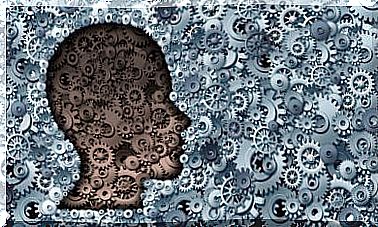The Effect Of Stress During Pregnancy

When you are pregnant, getting enough sleep, a balanced diet and exercise are very important. However, what about your emotions? What role do they play? It turns out that there is a connection between the emotional state of a pregnant woman and the health of the uterus. One consequence of this is that stress during pregnancy can cause fetal development problems.
Stress can cause changes in six different types of hormones: cortisol, glucagon, prolactin, testosterone, estrogen and progesterone. These changes affect both the pregnant woman and the fetus.
That is why women who experience severe psychological stress during their pregnancy are more at risk for complications. Stress during pregnancy can have physical, physiological and social implications.
Problems for the newborn baby
Stress during pregnancy can cause physiological, physical and even social problems. It can also affect your sleep patterns or your appetite. It can even cause frequent headaches, muscle tension and irritability. In addition, stress can also weaken your immune system, increasing the risk of infections.

Premature Birth and Low Birth Weight
Stress can trigger labour. This increases the risk of your baby being born prematurely (before 37 weeks) or having a low birth weight (less than 2.5 kilos).
These babies are more likely to suffer from certain health problems during their childhood, such as frequent illness, growth problems, attention problems, hyperactivity and motor problems.
Respiratory Diseases and Physical Infirmities
According to several studies, stress during pregnancy can also trigger asthma and skin conditions, such as atopic eczema, during the first eight months of a baby’s life.
Stress can also cause physical problems in a baby. One is pyloric hypertrophy, which is a narrowing of the gastric outlet to the duodenum. This condition requires immediate surgery.
Stress during pregnancy can also affect circulation
Above we already mentioned the hormones that have the most influence on your body when you experience stress. Well, after traveling through the bloodstream, these hormones make their way into the placenta.
The placenta serves as the baby’s lifeline while still in the womb. As a result, these extra hormones can even increase the baby’s heart rate. The less and shorter a pregnant woman experiences stress, the better. That way she won’t overwhelm the baby with all those hormones.
Learning ability and intelligence
As if all of the above weren’t enough, cortisol, the hormone that helps adults restore homeostasis, can cause serious problems for a baby’s future development. Studies show that the higher the cortisol level in the amniotic fluid, the lower the baby’s IQ will be in the future.
Having a low IQ is of course not a disease. However, having a lower than average IQ can affect a child’s life. In addition to challenges in the classroom, a low IQ also increases the risk of ADD or ADHD. Not only that, it can also be more difficult for someone with a low IQ to plan strategically or develop impulse control.

Be careful, but don’t panic
Sudden mood swings or prolonged anxiety are not trivial. They can have serious health consequences. Your body will let you know when you have built up stress or tension.
Maybe you don’t sleep well, you are overworked, or you have problems at home or at school. In addition, you can experience stress because you know that a small creature is growing inside you.
Nevertheless, it is important to point out that sudden and unexpected events that cause stress are not dangerous. For example, if a pregnant woman is startled by a barking dog.
The situations that you do need to keep an eye on are those that involve some sort of long-term threat, loss, or damage. This kind of situation can also harm the baby in the womb.
In addition, it is important to keep in mind that every woman reacts differently emotionally in similar situations. As a result, stress does not have the same effect on every woman.
Get plenty of rest and don’t be too hard on yourself. Tackle problems step by step, eat well and make sure you get enough exercise. In addition, follow your doctor’s instructions. All these things will help you avoid stress during pregnancy.









